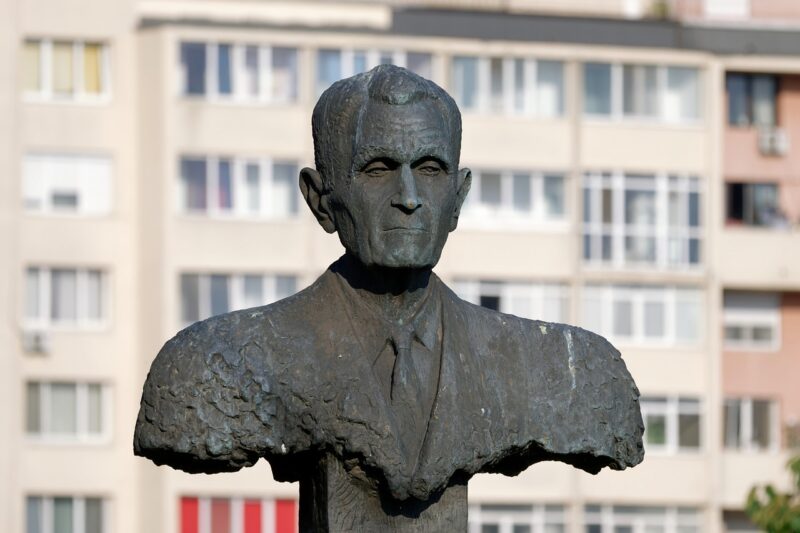How Famous Historical Figures Would Be Viewed by Today’s Standards
November 16, 2024

Throughout history, numerous individuals have left an indelible mark on the world, influencing everything from politics and science to culture and social movements. However, viewing these historical figures through the lens of contemporary values and societal norms can yield fascinating, albeit challenging insights. This article will explore how various prominent figures from the past might be perceived today, considering the shifting attitudes toward issues such as race, gender, sexuality, and ethics.
1. Abraham Lincoln: The Emancipator in Modern Context
Abraham Lincoln, the 16th President of the United States, is often celebrated as a champion of freedom through his role in the abolition of slavery. However, historical accounts reveal complexities in his views on race that might affect how he is viewed today. While he is lauded for the Emancipation Proclamation and guiding the nation through the Civil War, some debates question whether he genuinely believed in the equality of races or whether his actions were politically motivated to preserve the Union.
In modern discussions centered around race relations, Lincoln might be seen as a pivotal figure who laid a foundation for equality, but with a caveat that his legacy is not without flaws critical to consider today. Historians and scholars would likely analyze his writings and speeches, challenging whether he was truly an advocate for total equality or simply a pragmatic leader of his era.
2. Joan of Arc: Feminist Icon or Religious Martyr?
Joan of Arc, a peasant girl who claimed divine guidance to lead France to victory in the Hundred Years’ War, is a figure of adoration. Her bravery and commitment to her beliefs have been celebrated for centuries, but in today’s context, she could be viewed through various lenses.
As a young woman defying gender norms to lead troops, Joan could emerge as a powerful feminist icon. Modern viewers might celebrate her courage and autonomy while exploring themes of martyrdom versus empowerment. Discussions around her trial, where she faced charges of heresy for her beliefs and gender non-conformity, would evoke significant discourse on women’s rights and religious freedom in contemporary society.
3. Albert Einstein: The Paradox of Genius and Activism
Albert Einstein is often perceived as a symbol of intellectual brilliance; however, his life also presents elements that might alter his standing today. Einstein’s contributions to science, particularly his theories of relativity, positioned him as a revolutionary thinker. Yet, he was also an outspoken advocate for civil rights and had strong views on global disarmament. In contemporary discussions, Einstein’s stances on these issues may be seen as progressive, but scrutiny over his personal beliefs and affairs could generate debate.
For example, Einstein’s relationships with women and his views on marriage sometimes drew criticism, which could be re-evaluated under today’s standards for equality and gender relations. As such, he would likely be recognized for his genius while also prompting discussions on the ethical responsibilities of prominent figures.
4. Cleopatra: The Duality of Power and Seduction
Cleopatra, the last active ruler of the Ptolemaic Kingdom of Egypt, is frequently depicted as both a political strategist and a seductress. Today, society’s attitudes towards powerful women are nuanced, and Cleopatra could spark significant conversation around the portrayal of women in leadership.
While some might view her as a shrewd leader using her intellect and beauty to forge critical alliances, others may critique how history has framed her narrative, often emphasizing her relationships with powerful Roman leaders over her governance. The discussion around Cleopatra could touch on the objectification versus agency of women in power, raising questions about how history (and media) shapes our understanding of female leaders.
5. Mahatma Gandhi: A Complex Legacy of Nonviolence and Controversy
Mahatma Gandhi is revered for his role in leading India to independence through nonviolent means. However, a deeper look at his life reveals aspects that might complicate his legacy today. For instance, Gandhi’s views on race, particularly in the context of his early career in South Africa, may raise eyebrows. His letters and comments about African populations could be perceived as racist and hence problematic when assessed by contemporary standards of equality and social justice.
Today, people might grapple with the dichotomy of Gandhi’s principles of nonviolence against his less favorable rhetoric, which poses a challenge for admirers who wish to uphold him as a pure symbol of peace and resistance.
6. Conclusion: The Importance of Context
Reflecting on how historical figures would be viewed today highlights the importance of context when interpreting their actions and legacies. History is rarely black and white—individuals are often products of their times, and their decisions and beliefs can vary dramatically from today’s norms. Understanding the complexities of these historical legacies invites contemporary society to engage in discussions about ethics, morality, and growth, reminding us that while we flourish in advancements, we should continually reflect on our past.
By examining the lives of these renowned individuals, we gain valuable insights into the progression of societal values and how the frameworks they established continue to influence contemporary thought and debate. Ultimately, pondering the legacies of historical figures through a modern lens can inspire us to strive toward a more inclusive and equitable future for all.







